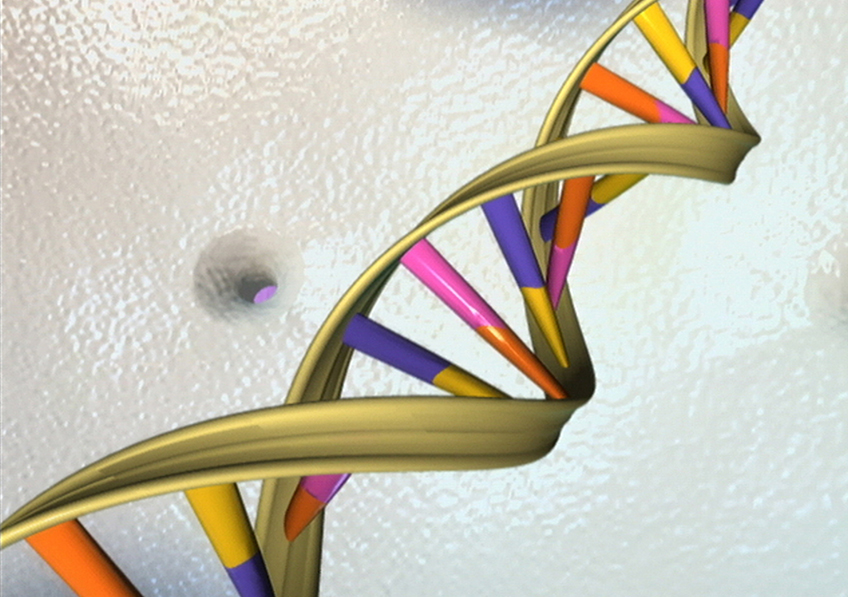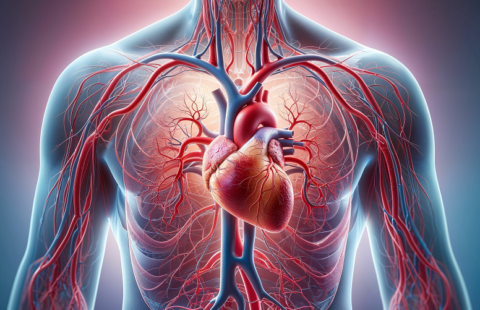PSMC3 proteasome subunit variants are associated with neurodevelopmental delay and type I interferon production
Science Translational Medicine, 31 mai 2023
DOI: 10.1126/scitranslmed.abo3189
Frédéric Ebstein1 †, Sébastien Küry2,3†, Victoria Most 4 , Cory Rosenfelt5 , Marie-Pier Scott-Boyer6 , Geeske M. van Woerden7,8,9, Thomas Besnard2,3, Jonas Johannes Papendorf1 , Maja Studencka-Turski1 , Tianyun Wang10,11,12, Tzung-Chien Hsieh13, Richard Golnik14, Dustin Baldridge15, Cara Forster16, Charlotte de Konink7,8, Selina M.W. Teurlings7,8, Virginie Vignard2,3, Richard H. van Jaarsveld17, Lesley Ades18,19, Benjamin Cogné2,3, Cyril Mignot20,21, Wallid Deb2,3, Marjolijn C.J. Jongmans17,22, F. Sessions Cole15, Marie-José H. van den Boogaard17, Jennifer A. Wambach15, Daniel J. Wegner15, Sandra Yang16, Vickie Hannig23, Jennifer Ann Brault23, Neda Zadeh24, Bruce Bennetts19,25, Boris Keren26, Anne-Claire Gélineau26, Zöe Powis27, Meghan Towne27, Kristine Bachman28, Andrea Seeley28, Anita E. Beck29, Jennifer Morrison30, Rachel Westman31, Kelly Averill32, Theresa Brunet33,34, Judith Haasters35, Melissa T. Carter36,37, Matthew Osmond36, Patricia G. Wheeler30, Francesca Forzano38,39, Shehla Mohammed38,39, Yannis Trakadis40, Andrea Accogli40, Rachel Harrison38,41, Yiran Guo42,43, Hakon Hakonarson42, Sophie Rondeau44, Geneviève Baujat 44, Giulia Barcia44, René Günther Feichtinger45, Johannes Adalbert Mayr45, Martin Preisel45, Frédéric Laumonnier46,47, Tilmann Kallinich48,49, Alexej Knaus13, Bertrand Isidor2,3, Peter Krawitz13, Uwe Völker50, Elke Hammer50, Arnaud Droit6 , Evan E. Eichler10,51, Ype Elgersma8,9, Peter W. Hildebrand4,52,53, François Bolduc5,54,55‡, Elke Krüger1 *‡, Stéphane Bézieau2,3*‡
1 Institut für Medizinische Biochemie und Molekularbiologie (IMBM), Universitätsmedizin Greifswald, Ferdinand-Sauerbruch-Straße, 17475 Greifswald, Germany.
2 Nantes Université, CHU Nantes, Service de Génétique Médicale, 44000 Nantes, France.
3 Nantes Université, CHU Nantes, CNRS, Inserm, l’institut du thorax, 44000 Nantes, France.
4 Institut für Medizinische Physik und Biophysik, Universität Leipzig, Medizinische Fakultät, Härtelstr. 16-18, 04107 Leipzig, Germany.
5 Department of Pediatrics, University of Alberta, Edmonton, AB CT6G 1C9, Canada.
6 Research Center of Quebec CHU-Université Laval, Québec, QC PQ G1E6W2, Canada.
7 Department of Neuroscience, Erasmus University Medical Center, 3015 CN, Rotterdam, Netherlands. 8 ENCORE Expertise Center for Neurodevelopmental Disorders, Erasmus University Medical Center, 3015 CN, Rotterdam, Netherlands.
9 Department of Clinical Genetics, Erasmus University Medical Center, 3015 CN, Rotterdam, Netherlands.
10 Department of Genome Sciences, University of Washington School of Medicine, Seattle, WA 98195, USA.
11 Department of Medical Genetics, Center for Medical Genetics, School of Basic Medical Sciences,
Peking University Health Science Center, Beijing 100191, China.
12 Neuroscience Research Institute, Peking University; Key Laboratory for Neuroscience, Ministry of Education of China & National Health Commission of China, Beijing 100191, China.
13 Institute for Genomic Statistics and Bioinformatics, University Hospital Bonn, Rheinische Friedrich-Wilhelms-Universität Bonn, 53127 Bonn, Germany.
14 Klinik für Pädiatrie I, Universitätsklinikum Halle (Saale), 06120 Halle (Saale), Germany.
15 Edward Mallinckrodt Department of Pediatrics, Washington University School of Medicine, St. Louis, MO 63130-4899, USA.
16 GeneDx, 207 Perry Parkway, Gaithersburg, MD 20877, USA.
17 Department of Genetics, University Medical Center Utrecht, 3508 AB, Utrecht, Netherlands.
18 Department of Clinical Genetics, Children’s Hospital at Westmead, Locked
Bag 4001, Westmead, NSW 2145, Australia.
19 Disciplines of Genomic Medicine & Child and Adolescent Health, Faculty of Medicine and Health, University of Sydney, Sydney, NSW 2145, Australia.
20 APHP, Hôpital Pitié-Salpêtrière, Département de Génétique, Centre de Reference Déficience Intellectuelle de Causes Rares, GRC UPMC Déficience Intellectuelle et Autisme, 75013 Paris, France. 21 Sorbonne Universités, Institut du Cerveau et de la Moelle épinière, ICM, Inserm U1127, CNRS UMR 7225, 75013, Paris, France.
22 Princess Máxima Center for Pediatric Oncology, 3584 CS Utrecht, Netherlands.
23 Department of Medicine, Vanderbilt University Medical Center, Nashville, TN 37232, USA.
24 Genetics Center and Division of Medical Genetics, Children’s Hospital of Orange County, Orange, CA 92868, USA.
25 Sydney Genome Diagnostics, Western Sydney Genetics Program, Children’s Hospital at Westmead, Sydney, NSW, 2145, Australia.
26 Département de Génétique, Centre de Référence des Déficiences Intellectuelles de Causes Rares, Groupe Hospitalier Pitié-Salpêtrière, Assistance Publique-Hôpitaux de Paris, 75013 Paris, France.
27 Department of Clinical Research, Ambry Genetics, Aliso Viejo, CA 92656, USA.
28 Genomic Medicine Institute, Geisinger, Danville, PA 17822, USA.
29 Department of Pediatrics, Division of Genetic Medicine, University of Washington and Seattle Children’s Hospital, Seattle, WA 98195-6320, USA.
30 Division of Genetics, Arnold Palmer Hospital for Children, Orlando Health, Orlando, FL 32806, USA. 31 Division of Genetics, St. Luke’s Clinic, Boise, ID 83712, USA.
32 Department of Pediatrics, Division of Pediatric Neurology, UT Health Science Center at San Antonio, San Antonio, TX 78229, USA.
33 Institute of Human Genetics, Technical University of Munich, School of Medicine, 81675 Munich, Germany.
34 Institute of Neurogenomics (ING), Helmholtz Zentrum München, German Research Center for Environmental Health, 85764 Neuherberg, Germany.
35 Klinikum der Universität München, Integriertes Sozialpädiatrisches Zentrum, 80337 Munich, Germany.
36 Children’s Hospital of Eastern Ontario Research Institute, University of Ottawa, Ottawa, ON K1H 8L1, Canada.
37 Department of Genetics, Children’s Hospital of Eastern Ontario, Ottawa, ON K1H 8L1, Canada.
38 Wellcome Trust Sanger Institute, Wellcome Trust Genome Campus, Hinxton, Cambridge CB10 1SA, UK.
39 Clinical Genetics Department, Guy’s and St Thomas’ NHS Foundation Trust, London SE1 9RT, UK. 40 Division of Medical Genetics, McGill University Health Centre, Montreal, QC H4A 3J1, Canada.
41 Department of Clinical Genetics, Nottingham University Hospitals NHS Trust, City Hospital Campus, the Gables, Gate 3, Hucknall Road, Nottingham NG5 1PB, UK.
42 Center for Applied Genomics, Children’s Hospital of Philadelphia, Philadelphia, PA 19104, USA.
43 Center for Data Driven Discovery in Biomedicine, Children’s Hospital of Philadelphia, Philadelphia, PA 19146, USA.
44 Service de Médecine Génomique des Maladies Rares, Hôpital Universitaire Necker-Enfants Malades, 75743 Paris, France.
45 University Children’s Hospital, Salzburger Landeskliniken (SALK) and Paracelsus Medical University (PMU), 5020 Salzburg, Austria.
46 UMR 1253, iBrain, Université de Tours, Inserm, 37032 Tours, France.
47 Service de Génétique, Centre Hospitalier Régional Universitaire, 37032 Tours, France.
48 Department of Pediatric Respiratory Medicine, Immunology and Critical Care Medicine, Charité Universitätsmedizin Berlin, 13353 Berlin, Germany.
49 Deutsches Rheumaforschungszentrum, an institute of the Leibniz Association, Berlin and Berlin Institute of Health, 10117 Berlin, Germany.
50 Universitätsmedizin Greifswald, Interfakultäres Institut für Genetik und Funktionelle Genomforschung, Abteilung für Funktionelle Genomforschung, 17487 Greifswald, Germany.
51 Howard Hughes Medical Institute, University of Washington, Seattle, WA 98195, USA.
52 Charité Universitätsmedizin Berlin, corporate member of Freie Universität Berlin and Humboldt-Universität zu Berlin, Institute of Medical Physics and Biophysics, Berlin, Germany.
53 Berlin Institute of Health, 10178 Berlin, Germany.
54 Neuroscience and Mental Health Institute, University of Alberta, Edmonton, AB T6G 2E1, Canada. 55 Department of Medical Genetics, University of Alberta, Edmonton, AB T6G 2H7, Canada.
*Corresponding author.
†The authors equally contributed to this work.
‡The authors equally contributed to this work.


